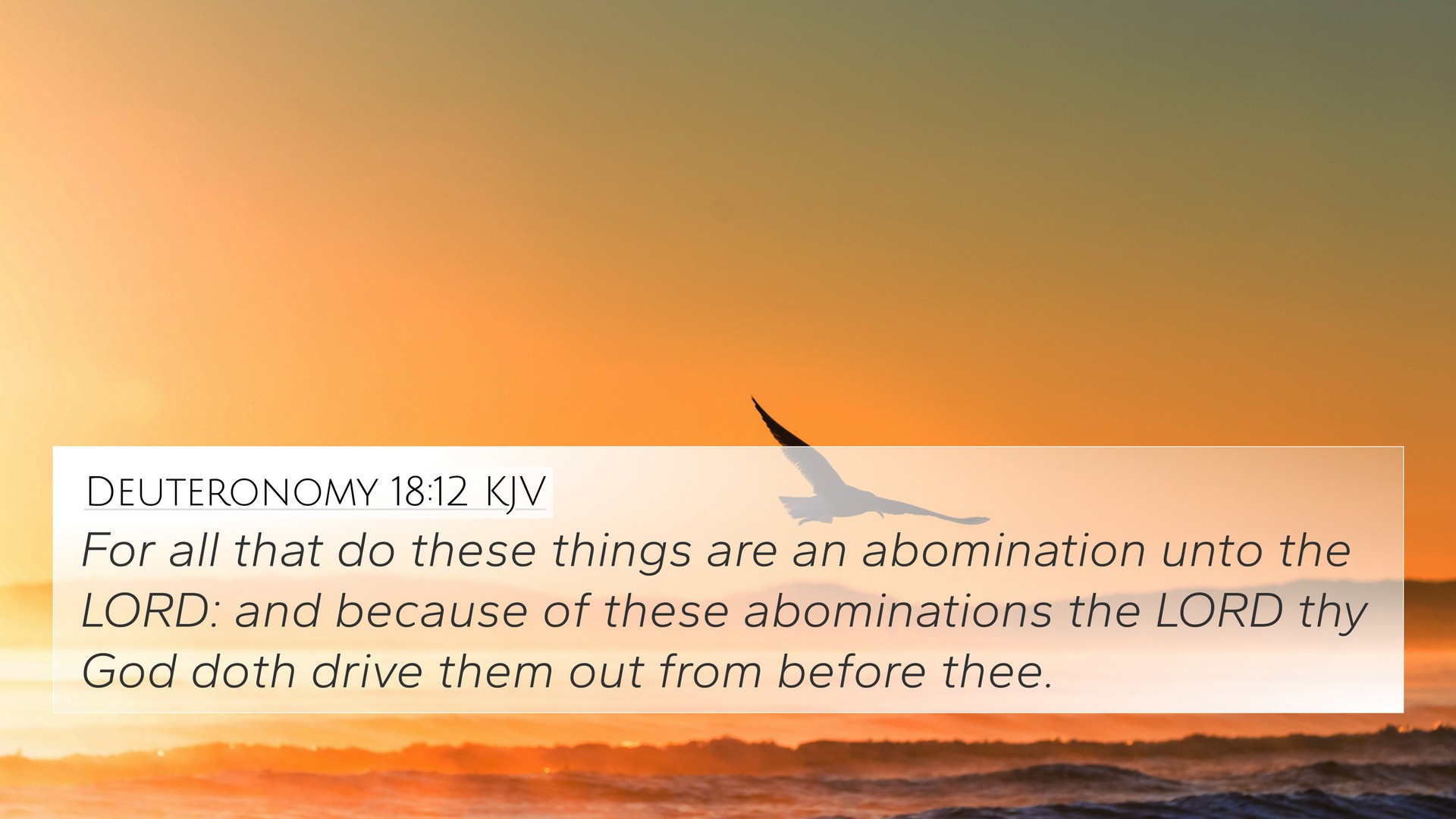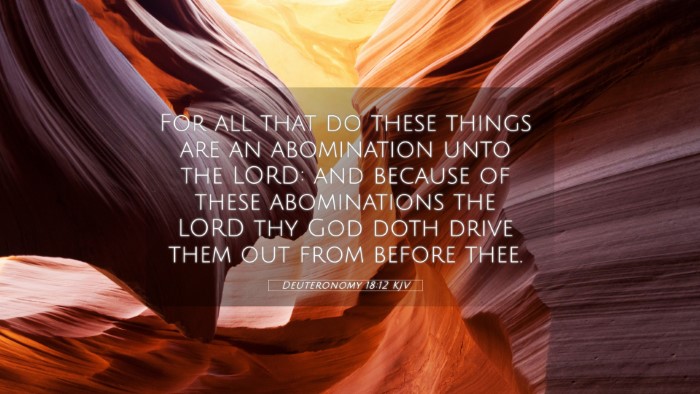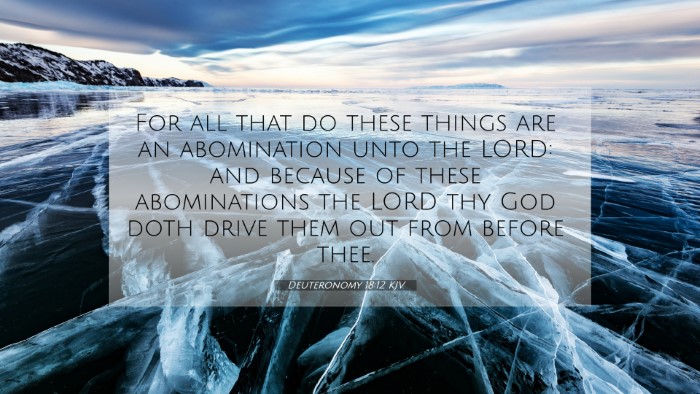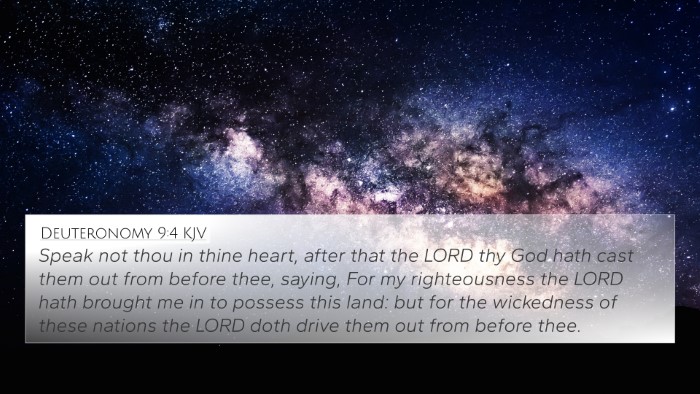Understanding Deuteronomy 18:12
Bible Verse: Deuteronomy 18:12
This verse states: "For all that do these things are an abomination unto the Lord: and because of these abominations the Lord thy God doth drive them out from before thee." This passage addresses the practices that are detestable to God, particularly those carried out by the nations surrounding Israel.
Verse Meaning and Insights
The verse is part of a larger discourse where Moses warns the Israelites about the dangers of idolatry and sorcery that the Canaanites engage in. Here are the interpretations provided by notable public domain commentaries:
- Matthew Henry: Henry emphasizes the gravity of these practices and asserts that they are an abomination to God. He illustrates how such cultures corrupted worship and that God's distaste for such actions results in His judgment.
- Albert Barnes: Barnes notes that God’s command is preventative; the Israelites are warned to avoid being corrupted by these practices, which lead to their destruction. He suggests this is a pivotal instruction for maintaining spiritual purity and devotion to God.
- Adam Clarke: Clarke discusses the context of ancient practices, shedding light on how God directed Israel's path by contrasting their unique covenant relationship with the surrounding nations' idolatrous actions. He comments on the implications of their obedience or disobedience to God's commands.
Thematic Bible Connections
Deuteronomy 18:12 connects with various themes throughout the Bible. Here are some notable cross-references that echo its message:
- Leviticus 20:27: Discusses the punishment for sorcery and evil practices, reinforcing the seriousness of the command.
- 1 Samuel 15:23: Connects disobedience to God with rebellion and idolatry, illustrating that turning from God's laws leads to grave consequences.
- Jeremiah 10:2: Advises against adopting pagan customs, which complements the warning in Deuteronomy 18:12.
- Revelation 21:8: Lists various sinful practices that lead to separation from God, illustrating the eternal ramifications of such actions.
- Galatians 5:19-21: Speaks to the works of the flesh, many of which align with the detestable practices mentioned in Deuteronomy.
- Isaiah 47:12-13: Addresses the fall of Babylon for its sorcery and idolatry, echoing the theme of divine judgment on nations for such practices.
- Matthew 15:9: Jesus quotes Isaiah while condemning vain worship, tying New Testament teachings back to the same core issues of sincerity and purity in worship.
Comprehensive Analysis and Cross-Referencing
When analyzing Deuteronomy 18:12, it is crucial to utilize tools for Bible cross-referencing. Below are some methods and resources to facilitate this process:
- Bible Concordance: A valuable tool to identify where specific words, themes, or ideas appear throughout Scripture.
- Bible Cross-Reference Guide: These guides help in finding related passages in both Old and New Testaments.
- Cross-Reference Bible Study: Includes methods to effectively interpret and link different verses for deeper understanding.
- Bible Chain References: A method that connects verses in a sequence that reflects a comprehensive study of a theme.
- Comprehensive Bible Cross-Reference Materials: Available for detailed cross-referencing between different Biblical texts and teachings.
Conclusion
The message of Deuteronomy 18:12 remains a key aspect of understanding God's expectations of His people. By cross-referencing this verse with others across the Bible, believers can grasp the overarching theme of divine alignment, purity, and the consequences of straying from God’s commandments. This serves as an essential study for anyone seeking deeper insight into Biblical texts and their connections.





